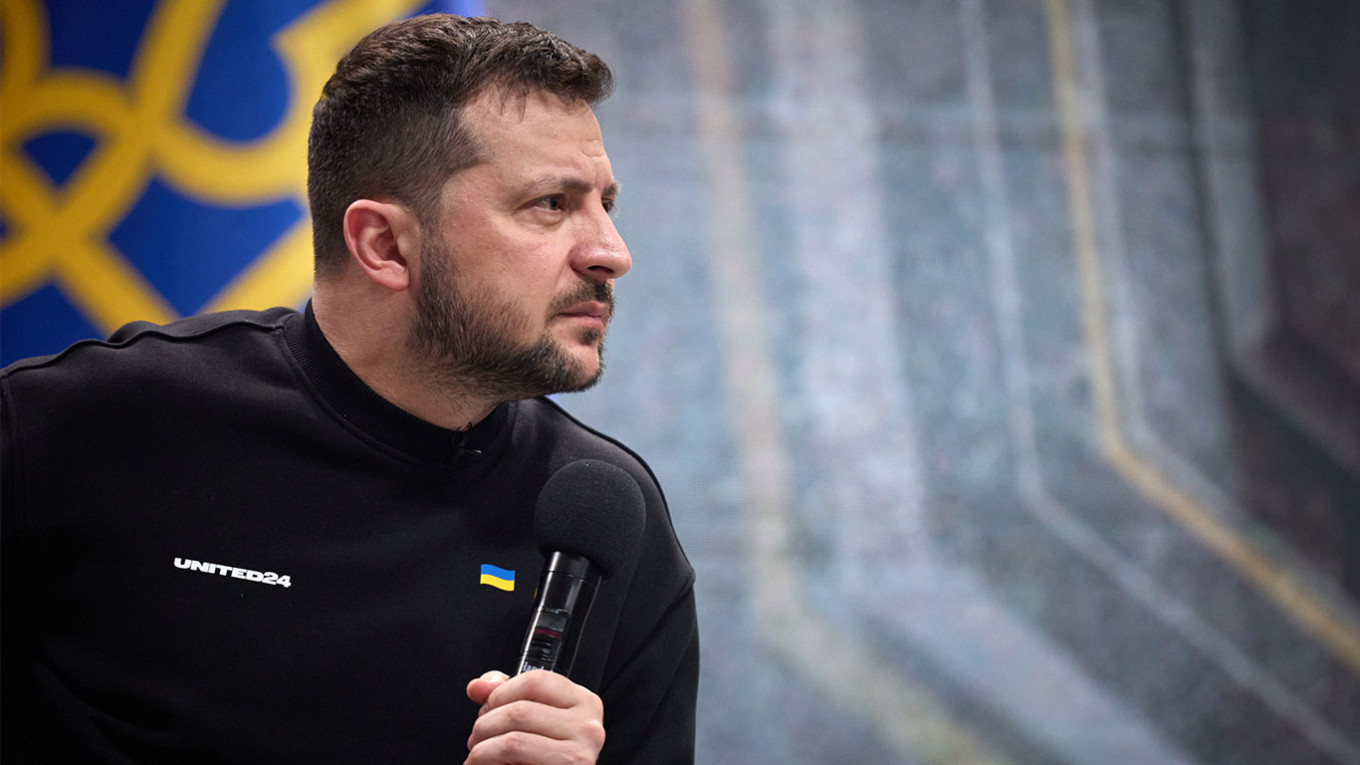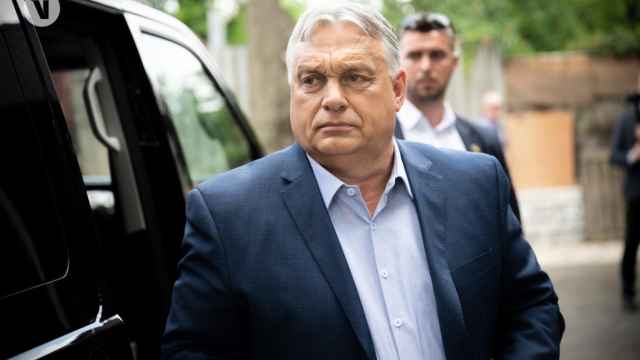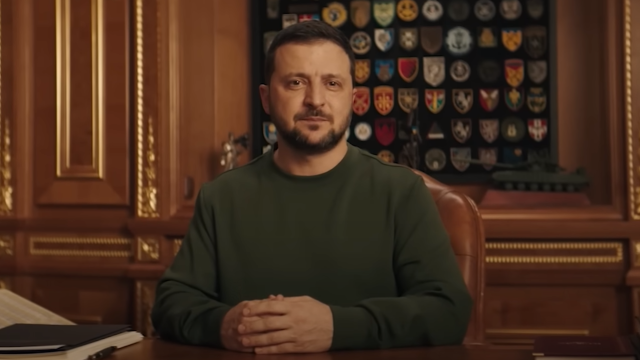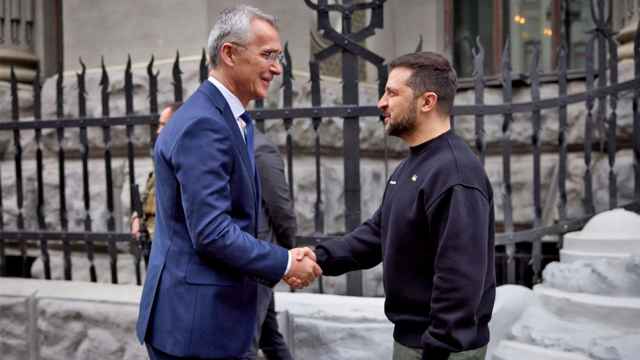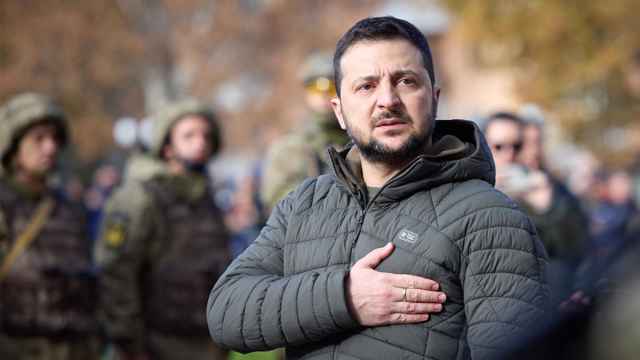In the grimmest of circumstances, Feb. 24, 2022 transformed Volodymyr Zelensky from a Ukrainian star into a global one. As one would expect, authors have rushed to paint portraits of Ukraine’s telegenic leader. First came “Zelensky: The Unlikely Ukrainian Hero who Defied Putin and United the World” by Andrew L. Urban and Chris McLeod (April 2022); then “Zelensky: A Biography” by Serhii Rudenko (July 2022); followed by “Volodymyr Zelensky: In His Own Words” by Lisa Rogak and Daisy Gibbons (October 2022).
What distinguishes “The Zelensky Effect” is that its authors are seasoned political scientists who have been studying the issues covered in the book for decades. Olga Onuch is Senior Lecturer in Politics at the University of Manchester and Henry E. Hale is Professor of Political Science and International Affairs at George Washington University. The Zelensky Effect draws extensively upon Onuch’s years of research on mass mobilization. MOBILISE, a multi-year research project covering seven countries including Ukraine on the factors that drive protest and migration, is the book’s most referenced data set. This gives statistical meat to its compelling narrative and turns the book into a definitive portrait not of a man but of a nation.
The authors’ central contention is that Zelensky “embodies civic Ukrainian national identity” and that it is his status as a “Ukrainian everyperson” that has allowed him to rally the country in its darkest of hours. Tracing Zelensky’s personal and political trajectory through the lens of key moments in modern Ukrainian history — from the student-led Revolution on Granite of 1990 to the Euromaidan of 2013-14 — the story told by Onuch and Hale is one of continuity. Through extensive discourse analysis of his speeches, skits, and even dialogue from the television show “Servant of the People,” they demonstrate that Zelensky’s political vision has been remarkably constant throughout his career. His wartime leadership, they write, proceeds “first and foremost from an emphasis on the same Ukrainian civic unity that he had both reflected and developed in the entertainment sphere and now as president for well over a decade.”
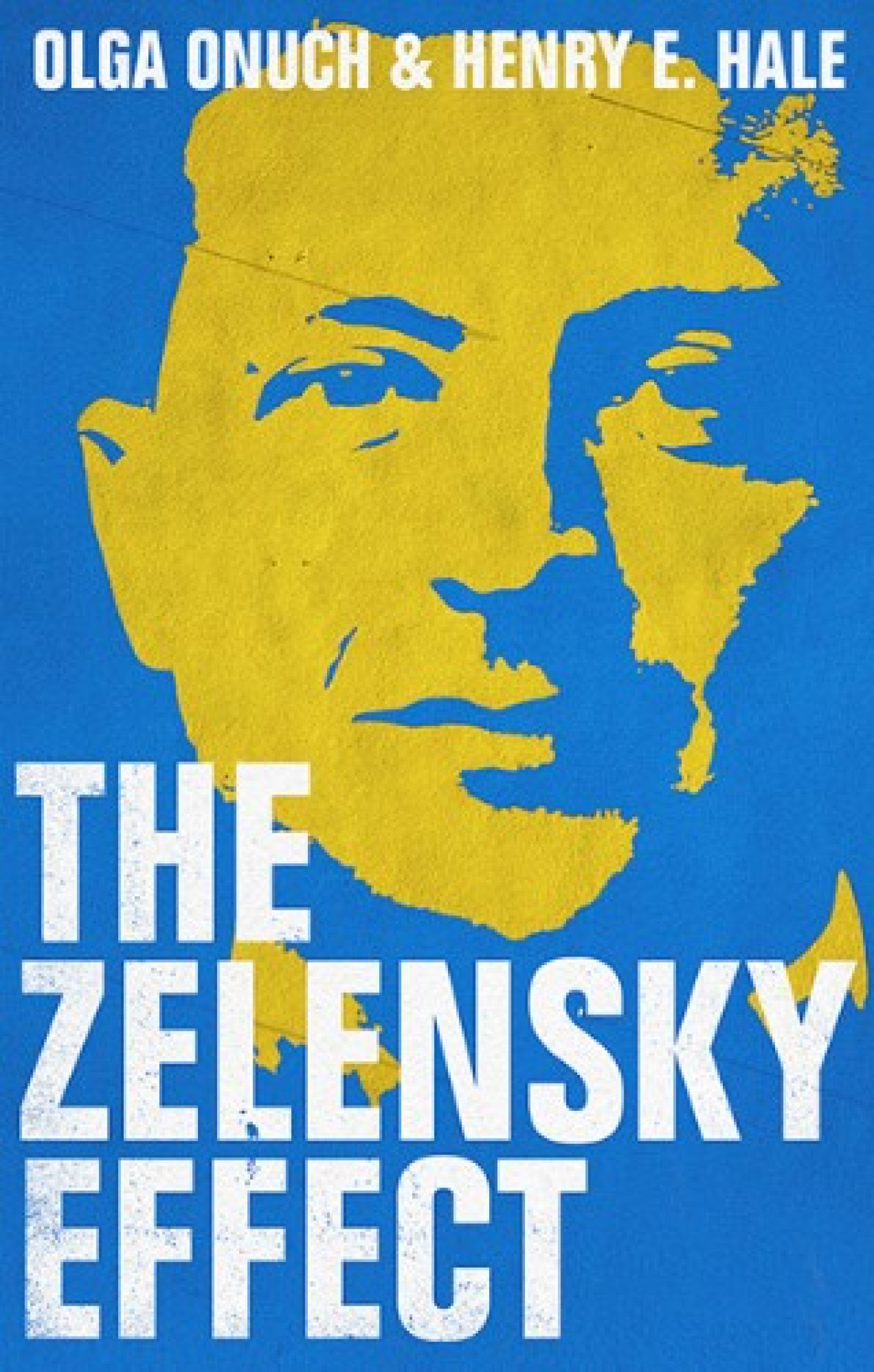
With its in media res opening and recommendations of Ukrainian songs between chapters, Onuch and Hale’s writing style is compelling and accessible. While certainly a scholarly book, its authors forgo the jargon and studied detachment that one might associate with the genre. The authors succinctly unpack the few specialist terms that they do use — such as “patronal polity,” “civic national identity,” “rally effects,” and “generational effects” — in the first chapter. They are also clear about their deeply personal connections to Ukraine, with one particularly poignant paragraph on the day the full-scale invasion began: “ [...] the big questions were sometimes small ones. Should Olga, one of this book’s authors watching from her Manchester flat, wake up her friend Olesya in Kyiv or her Aunt Olya in Lviv to tell them Russia was about to bomb Ukraine, or should she give them a few more minutes of sleep, knowing they would wake up to this nightmare soon enough?”
This is not a tell-all biography; Onuch and Hale make a window into the president’s soul. There are no quotes or reminiscences from childhood friends or inside sources, the standard fare of popular biographies, and only occasionally do the authors veer into the hypotheticals that so often fill the biographies of great historical and contemporary figures. “Once cannot help but imagine,” they write in Chapter Seven, “what Zelensky was thinking as he sat in his underground bunker as Russian tanks first rolled into the country [...] one wonders whether he thought at all about the fictional character he had created and played only three years earlier.”
Onuch and Hale do not lionize their subject, but their image of Zelensky is overwhelmingly positive. He is a savvy comedian, a hard-working producer, an “extraordinary communicator.” He is the President who led people to “support democracy, the EU, and NATO when they had not done so before,” who knew to “step back” and leave military decisions to the professionals. Since the book is so emphatic about Ukrainians’ strong sense of civic responsibility, one conspicuously absent character in its narrative is that of Ukraine’s thriving civil society. Given the latter’s prominent role in the Orange Revolution and exponential growth post-Euromaidan, it is an essential part of the eponymous Zelensky Effect. The consensus among Ukrainian civil society organizations since last February has been to avoid vociferous public criticism of the government so as not to undermine the war effort. Some civic actors, however, have privately expressed concern about the concentration of power in the President’s office as well as its unwillingness to engage civil society in its plans for post-war reconstruction. Including some of these critical voices would have strengthened what is already a powerful portrayal of Ukraine’s leader and the society he represents.
The authors deserve particular commendation for raising the difficult questions so often absent from Western political discourse about Ukraine: When the war ends, will Zelensky revert to patronal politics as usual? Will he “come to equate his own political fate with that of the country,” thereby paving the way for an authoritarian turn? Since he has premised his whole career upon uniting Ukrainians, will he be able to make the difficult decisions that may become necessary to end the war if he knows they will result in division? Onuch and Hale are clear-eyed in their assessment of the challenges that will face Ukraine once it achieves military victory. “The Zelensky Effect” is a timely reminder that those of us who believe in Ukraine’s future must help its citizens not only to win the war, but also to win the peace.
“The Zelensky Effect” by Olga Onuch and Henry E. Hale is published by Hurst and is part of the series ‘New Perspectives on Eastern Europe and Eurasia’. It is available to purchase from their website, on other online sites, and in bookstores.
A Message from The Moscow Times:
Dear readers,
We are facing unprecedented challenges. Russia's Prosecutor General's Office has designated The Moscow Times as an "undesirable" organization, criminalizing our work and putting our staff at risk of prosecution. This follows our earlier unjust labeling as a "foreign agent."
These actions are direct attempts to silence independent journalism in Russia. The authorities claim our work "discredits the decisions of the Russian leadership." We see things differently: we strive to provide accurate, unbiased reporting on Russia.
We, the journalists of The Moscow Times, refuse to be silenced. But to continue our work, we need your help.
Your support, no matter how small, makes a world of difference. If you can, please support us monthly starting from just $2. It's quick to set up, and every contribution makes a significant impact.
By supporting The Moscow Times, you're defending open, independent journalism in the face of repression. Thank you for standing with us.
Remind me later.



